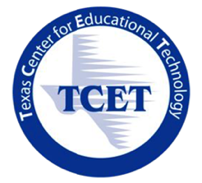|
|
 |
|
SYMPOSIUM
The Human-Technology Frontier:
Understanding the Learning of Now to Prepare for the Work of Future
Wednesday, May 16 – Friday 18, University of North Texas, Denton, Texas, U.S.A.
About
The Texas Center for Educational Technology (TCET) is hosting a working symposium with distinguished scholars on May 16 – May 18, 2018. The symposium is sponsored by the Association for Educational Communications and Technology (AECT) and University of North Texas. The purpose of this working symposium is to generate short-term and long-term collaboration goals and plans for reviving TCET as a Research and Development center for educational technologies in Texas. Distinguished scholars will focus on the learner as a whole person, with healthy development of brain, habit, behavior, and learning in the fast-advancing technological world. The general format of each day will feature short and provoking presentations each morning and afternoon, followed by small group activities around key topics.
Goals and Deliverables
Background
One of the big ideas proposed by the National Science Foundation is "The Future of Work at the Human-Technology Frontier." The four core research themes proposed by NSF are: 1) Building the human-technology partnership; 2) Augmenting human performance; 3) Illuminating the socio-technological landscape; 4) Fostering lifelong learning. This working symposium addresses some of these issues. The key discussion topics include:
- Learning and human intelligence: What are the fundamental problems with regard to learning and education? What do the history and future of learning look like? Based on what we know of the brain and what we are likely to understand in near future, how should learning be defined/redefined?
- Towards a holistic account of a person – brain, body, habits, and environment: How do people typically develop over time and with experience? How do researchers in different disciplines typically frame learning research and which ones have embraced a holistic approach? What would a research design that embraces a whole person perspective look like? Share examples.
- Human intelligence with innovations and advances of technologies: What technologies are most likely to have a positive impact on learning in the next 2 years? 5 years? 10 years? What are the most challenging problems confronting effective use of advanced technologies today? What challenges are likely to emerge in the next 2 to 5 years?
- Properties and units of measures of learning: What are the constructs of learning given the multilevel technologies, collaborative networks, methodologies, and analysis techniques we have to work with?
- Fragmented relationship among theory, research, practice and policy: What examples of effective alignment link behavioral, cognitive and neurological science, learning research, instructional practice, and educational policy? What might be done in the next 2 to 5 years to improve those links?
- What would a reasonable research agenda be for an organization like TCET? What can we do together – publish, present, conduct research and development?






